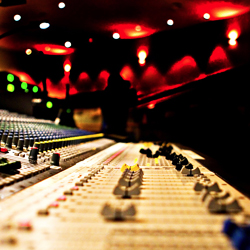Editor’s Note: This story originally ran in December 2010, but the information is still very relevant and worthy of repeating.
This week is production week for us at Coast Hills.
And it’s quite a production; Gunch! is an (almost) all-original musical-style stage play with an 80+ member cast, 13 person pit band and five performances over the weekend with an expected attendance of 4500+.
It’s quite an undertaking.
This past Friday was opening night and we have over 200 lighting cues, 80 audio snapshots (plus several dozen manual cues), aero technics and a Kabuki drop.
How do we make it all work? A lot of planning, of course, and a tech rehearsal.
A tech rehearsal is an oft-ignored and underutilized night of rehearsal in most churches. In fact, this is one of the few that I’ve actually gotten to do; most churches I’ve been a part of haven’t valued tech enough to do one, at our own peril.
The tech rehearsal is vital to a successful production if said production involves more than about 6 cues. How does a tech rehearsal differ from a regular rehearsal? Read on…
Tech Rehearsal Defined
Most rehearsals are for the band and or actors to learn their parts, blocking, entrances, exits and generally work out the stage craft. Those are necessary and valuable.
The tech team often sits in on those and even supports them with tech, and can sometimes make valuable progress in getting cueing and notes worked out.
A tech rehearsal, in contrast, is all about the tech. The tech team is in complete control and can stop the rehearsal at any time. As shows get more complex, requiring the writing of cues for lighting, audio, video and presentation, the rehearsal has to start and stop to give the tech team time to write those cues.
Sometimes it takes a few seconds, sometimes it takes a few minutes. In a tech rehearsal, the tech director can call Stop and everyone on the stage is supposed to freeze. The team writes cues, updates lighting positions, works on audio levels or whatever they need to do.
Rather than rushing and scrambling to build a cuelist on the fly, the tech rehearsal gives the tech team the time they need to get a solid draft of the show. Sometimes major changes need to be made (lights may need to be re-hung, videos may need to be re-edited, additional mics or monitors added), and those changes can be noted and worked on at a later time.
















